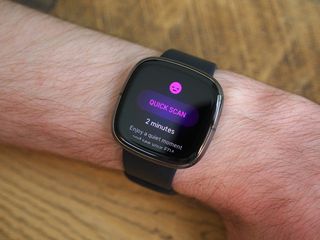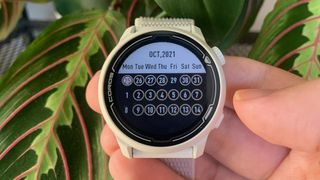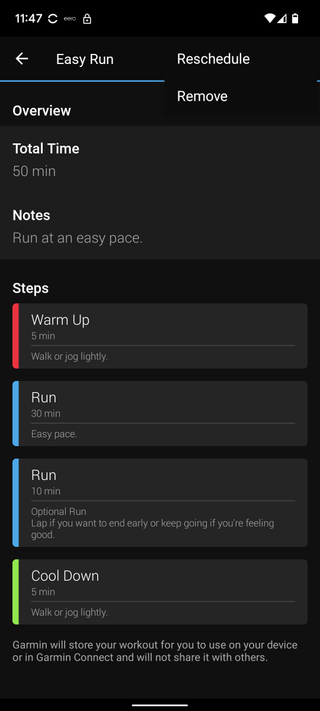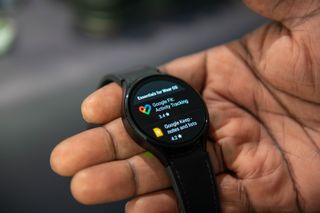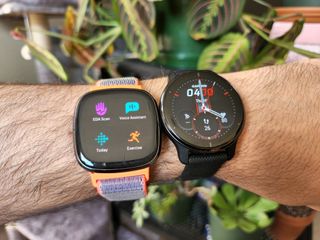People expect fitness smartwatches and trackers to cost much less than an Apple or Samsung lifestyle watch because they “only” track your health and fitness data. They’re tools, not accessories. But believe it or not, squeezing tons of health sensors and GPS into a band that weighs an ounce or two, lasts a week or more per charge, and extrapolates your fitness level and healthiness from the data isn’t a cheap affair.
These days, you can get a cheap fitness tracker with heart rate and blood oxygen monitoring for $50, and even if better models produce more accurate data, most people won’t notice the difference. So fitness brands above the bargain-bin level have two options: sell premium watches that target athletes and the wealthy, or sell hardware at or below cost and subsidize the consumer-friendly pricing with subscriptions.
Fitness brands like Fitbit, Amazon Halo, Whoop, and Oura fall into the latter category. They sell reasonably affordable devices — or give them away, in Whoop’s case — by locking vital features behind a monthly subscription fee. And while I’m in no way criticizing this business model or people who buy them, I always lean towards brands that don’t hold your data hostage.
Take Fitbit Premium. Whichever Fitbit device you buy, you’ll get 3-12 months’ free access to Guided Programs for fitness and dieting, various workouts, personalized “Insights” into your current health, a Wellness Report with your health trends over the last 30 days, and Snore Detection for sleep tracking.
Anyone dedicated to getting or staying healthy can really benefit from Fitbit Premium’s perks. But once your trial ends, you’re paying $10/month or $80/year for the privilege, ballooning the true cost of the tracker over time. And without Premium, you’re getting a stripped-down experience where much of your data is locked behind that paywall.
Each brand prices the value of its data differently. Buying the Amazon Halo View nets you a free year of the Halo fitness membership, which after that year then costs $4/month. The Oura Ring charges $6/month after a 6-month trial. And Whoop actually gives you a free Whoop 4.0 but charges a hefty $30/month or $288/year for its metrics.
The fact is, these subscriptions are less about data collection than they are about data repackaging. Case in point, Fitbit Premium costs the same whichever Fitbit you buy; the Fitbit Charge 5 has ECG, EDA, and temperature sensors to give more accurate results, but cheaper models like the Inspire 2 still offer you health advice with the information available. The cost of the membership correlates to the thoroughness of the data provided, not its accuracy.
Whichever fitness smartwatch you buy, you’re paying for an app to affirm your healthiness (or your need to get healthier), remind you to get moving, and offer some individualized workouts. It collects your data in a way that’s easy to parse and act upon. You can easily argue that’s worth paying for, since you’re investing in yourself.
But other smartwatch brands offer many of these “premium” perks for free! You pay more for the hardware but save money in the long run.
Brands like Garmin specialize more in fitness data than health data, but that doesn’t make it any less thorough or helpful. Garmin watches will give you information on your resting heart rate, VO2 Max, lactate threshold, training load, recovery, and your “Body Battery” levels based on sleep, workouts, and stress — among many, many other metrics. And other premium fitness brands like Coros and Polar offer similar data, also without charging a subscription.
Beyond the data, these brands also offer complimentary workouts and training plans from coaches partnered with the brand. Particularly if you use outdoor sports like running or cycling to get healthy, these fitness brands have the tools you need for your marathon training or couch-to-5K prep without paying for it.
Having reviewed excellent watches like the Garmin Venu 2 Plus and Coros Pace 2, I’ve grown accustomed to getting thorough fitness data and workout plans from real people rather than a faceless algorithm.
It’s fair to counter that most of these watches are quite expensive, ranging from $200 to $500; it’s a lot to pay upfront. But a $100 Fitbit really costs $260 after 2 years (+ the trial period) or $420 after four — more if you pay monthly. You’re not saving as much as you’d think, and pricier smartwatches also tend to be better than a budget option.
Maybe you’re more interested in health data than fitness, or don’t like the bulky look of Garmin watches. In that case, keep in mind that Samsung or Apple watches also offer a ton of health data through Samsung/Apple Health. And they don’t charge you for the data, either.
The Galaxy Watch 4 can track your heart rate, blood pressure, sleep patterns, BMI, ECG, and BIA readings all at once. You’ll have a minute-by-minute look at your current health on Samsung Health or Google Fit…without any money required to check it.
As for the Apple Watch Series 7, its activity rings are a popular and straightforward way to encourage you to hit your fitness targets every day, with HRM, ECG, and blood oxygen monitoring sensors to keep an eye on you. While you can pay $10/month or $80/year for Apple Fitness+, that’s for rotating at-home workouts and other optional features; you can still export all your health data to your favorite fitness app for free.
Samsung and Apple don’t curate your fitness data quite as helpfully, but they’ll sync up with other third-party fitness apps and running apps that can interpret your data pretty darn well. You may have to subscribe to these apps; but if you cancel your subs, it won’t undermine your experience with the watch. You can keep wearing it.
Whether you want a lifestyle or fitness watch, you don’t have to accept paying for a fitness subscription. They have their time and place, especially in the era of working from home. If you can’t go to the gym, you need some DIY software to stay healthy. But in my mind, you should pay for software and software alone. If you’re paying for data that comes from hardware you bought and paid for, then you’re getting a raw deal.
We’ve heard plenty of rumors about Google’s upcoming Pixel Watch, which will allegedly have Fitbit integration to go with the Wear OS 3 software. On the one hand, I’m excited for a lifestyle watch that incorporates all the health and fitness data you’d ever need. On the other hand, if you need a Fitbit Premium subscription to get the most out of a Google watch, then that’s a downside that gives its rivals a leg up.

